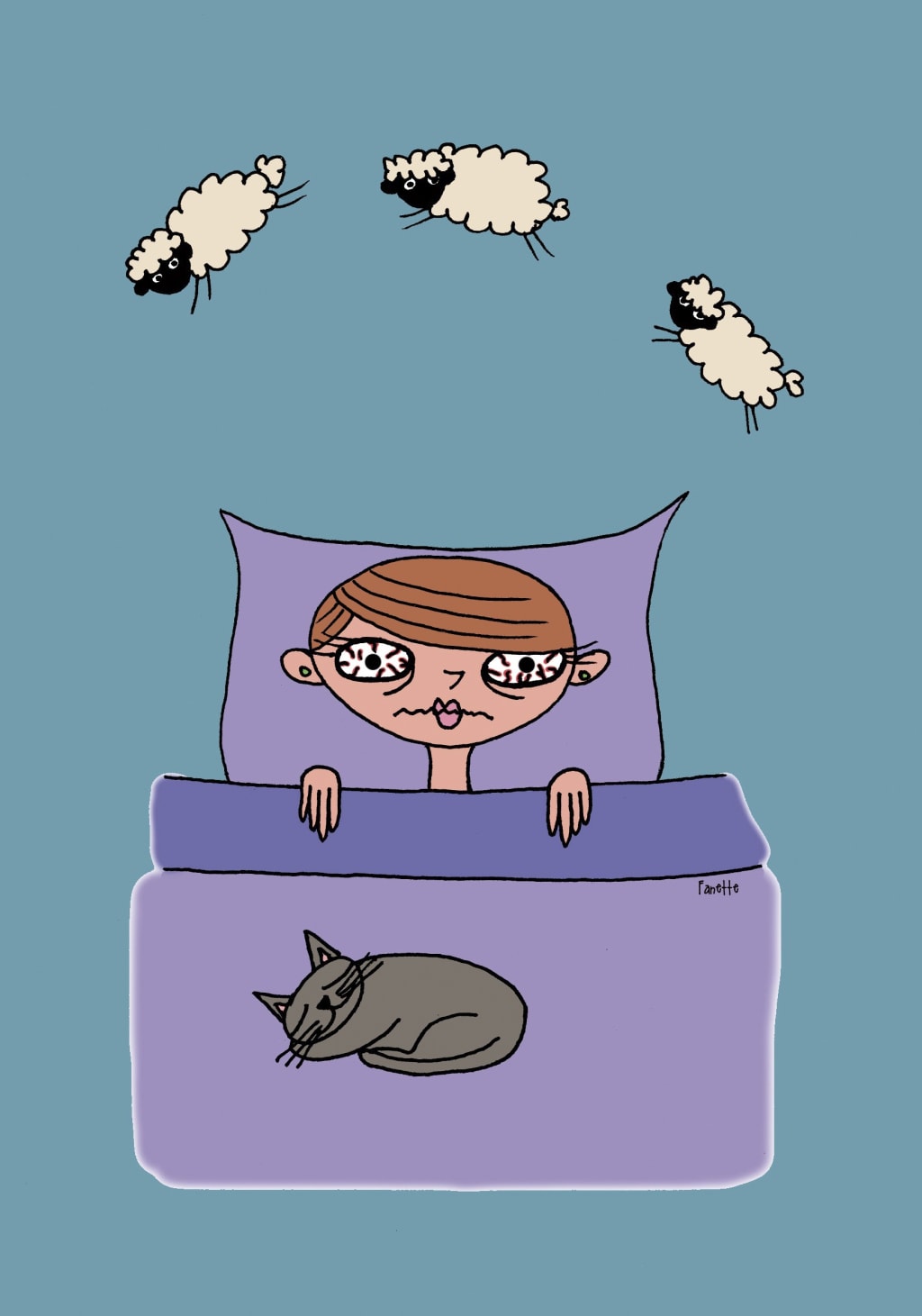
Is it stress over unfinished work, an impending test, or a dreaded family gathering that keeps you up at night? For many people, this stress is temporary as its cause is quickly resolved. Other sleep-related causes include deep philosophical thought, excitement for a significant trip, or insomnia. This seemingly intractable loop is at the core of insomnia, the most prevalent sleep disorder in the world, but what if the very thing keeping you awake was stress about losing sleep? A partner who snores, discomfort in the body, or emotional stress can all contribute to the occasional restless night.
Additionally, severe sleep deprivation, such as jet lag, can mess with your biological clock and disrupt your sleep schedule. But sleep deprivation typically only lasts a short while. We're all going to get tired eventually. But some persistent ailments, including digestive issues, respiratory issues, and many others, can overcome fatigue. Furthermore, as the number of restless nights increases, the bedroom may begin to conjure up memories of anxiously restless nights. Insomniacs are anxious before going to sleep. They are so stressed out that their brains hijack the stress response system, flooding the body with chemicals that cause it to fight, flight, or freeze. Cortisol and adrenocorticotropic hormones surge through the bloodstream, raising heart rate and blood pressure and jolting the body into hyperarousal. This makes it impossible to ignore any minor discomfort or nocturnal noise because the brain is constantly scanning for potential threats. The quality of their sleep is also compromised when insomniacs do eventually get some shut-eye. Cerebral glucose is the main energy source for our brain, and during sound sleep, our metabolism slows to save this glucose for waking hours.
However, PET studies reveal that while adrenaline keeps insomniacs awake, it also accelerates their metabolisms. Their bodies are working overtime while they are sleeping, depleting the brain's supply of glucose, which provides energy. Insomniacs who experience this insomnia symptom often wake up feeling exhausted, disoriented, and stressed, which sets off the cycle all over again. Chronic insomnia is a diagnosis given when these stressful and restless cycles last for several months. Even though it rarely results in death, insomnia's chemical mechanisms are related to the anxiety attacks that are experienced by people who are depressed or anxious. Therefore, having one of these ailments raises your risk of having the other two as well. Fortunately, there are strategies for ending the vicious cycle of insomnia. One of the most effective treatments for insomnia is managing the stress that causes hyperarousal, and good sleep habits can help you reestablish a positive relationship with bedtime. If you want to reduce "threats" during hyperarousal, make sure your bedroom is dark and cozy. Only use your bed for sleeping, and if you find yourself getting restless, get out of the house and spend some time relaxing, such as reading, practicing meditation, or keeping a journal.
Setting regular sleeping and waking hours will help your body's biological clock stay in alignment while regulating your metabolism. Avoid bright lights at night to help signal to your body that it is time for sleep because this clock, or circadian rhythm, is also sensitive to light. In addition to these methods, some medical professionals also recommend sleeping pills, but not all of these pills are effective in all situations. Furthermore, over-the-counter sleeping pills have the potential to be very addictive, which can worsen withdrawal symptoms. Make sure your lack of sleep is actually caused by insomnia before seeking treatment. Delayed sleep phase disorder, or DSPD, is a less frequent genetic condition that affects about 8% of patients who have been diagnosed with chronic insomnia. The circadian rhythm of people with DSPD is significantly longer than 24 hours, which causes their sleeping patterns to be out of sync with conventional sleeping hours. So even though they have trouble sleeping at a regular time of night, it's not because they are under more stress.
Furthermore, they can easily snooze on their own delayed schedule if given the chance. For our physical and mental health, it is crucial to maintain the delicate balance of our sleeping and waking cycles. For all of these reasons, it's worthwhile to invest some time and effort in maintaining a consistent bedtime routine, but try not to stress about it too much.
About the Creator
Enjoyed the story? Support the Creator.
Subscribe for free to receive all their stories in your feed. You could also pledge your support or give them a one-off tip, letting them know you appreciate their work.






Comments
There are no comments for this story
Be the first to respond and start the conversation.